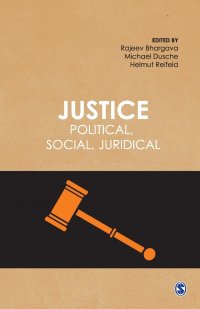This book looks at concepts of justice from points of view of various religious and cultural traditions (Hinduism, Islam, Christianity, Cosmopolitanism, Tribal Cultures) and different methodological perspectives (historical, theological, philosophical, sociological). One common thread in these essays is the reflection on ethics universally and reference to the basic values of the Indian constitution. People from all categories were included in the dialogue process on justice in order to avoid any risk of unintentionally missing out people belonging to certain categories. This volume attempts to express the opinions of people whose voices were not very prominent in theoretical debates on justice and its practical implications. Their perspectives on justice are contrasted with mainstream conceptions of justice, whose problematic representativeness for India today is thereby interpreted. Both abstract universalism and relativism lack a common point of reference to assess relevance and adequacy of a given conception of justice. Neither unaffected universalism nor relativism defined by traditional norms turns is sustainable. The contributors offer a concept of 'internal universalism' as an alternative to unaffected universalism. Combining various forms and stages of 'reflective equilibrium' as conceived by John Rawls, this framework provides us with the necessary reference point to assess the adequacy as proposed in this book and engage in a comprehensive dialogue on questions of justice. Это и многое другое вы найдете в книге Justice. Political, Social, Juridical (SAGE PUBLICATIONS PVT LTD)
Justice. Political, Social, Juridical SAGE PUBLICATIONS PVT LTD
Подробная информация о книге «Justice. Political, Social, Juridical SAGE PUBLICATIONS PVT LTD». Сайт не предоставляет возможности читать онлайн или скачать бесплатно книгу «Justice. Political, Social, Juridical SAGE PUBLICATIONS PVT LTD»
